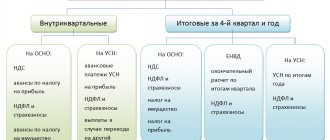Is it possible to lend without interest?
Civil legislation does not contain a ban on providing interest-free loans. Moreover, the lender has the right to receive interest from the borrower on the loan amount, unless otherwise provided by the agreement (Part 1 of Article 809 of the Civil Code of the Russian Federation). That is, when issuing an interest-free loan, this must be provided for in the contract. If there is no such clause, then by default the loan agreement is considered interest-bearing. In this case, interest is determined based on the key rate of the Central Bank of the Russian Federation, which is applied instead of the refinancing rate from January 1, 2021.
When debt with interest
In the case where the loan is provided with interest, it is necessary to sign an agreement and this fact must be recorded in a separate clause.
It should indicate the scheme for repaying interest on the loan. It will be more convenient for accounting if interest is reimbursed every month. This makes it easier to take them into account when calculating income tax.
According to paragraph 2 of Article 180 of the Civil Code of the Russian Federation, it is possible to return funds earlier than the period specified in the contract only with the consent of the creditor.
Sometimes the contract is drawn up in such a way that the return of funds is possible using installments. This payment method is permitted by law.
But, in accordance with paragraph 2 of Article 811 of the Civil Code of the Russian Federation, in the case when the borrower misses the moment of payment, the founder has the right to demand that the loan be repaid earlier in full, along with interest for the period indicated in the agreement.
Borrower - organization
The question that worries organizations is: do they generate income in the form of material benefits when receiving “free” loans? For example, with a gratuitous lease, the user of the property must reflect non-operating income based on the market value of the lease. Doesn't a similar procedure apply when receiving interest-free loans?
No, it does not apply. When calculating income tax, organizations take into account income from sales and non-operating income (clause 1 of Article 248 of the Tax Code of the Russian Federation). In the list of non-operating income given in Article 250 of the Tax Code of the Russian Federation, the material benefit received by the organization from the interest-free use of borrowed funds is not named. Of course, this list is not closed, but in order for the amount of benefit to correspond to income, it is necessary that the possibility of its assessment be provided for in Chapter 25 of the Tax Code of the Russian Federation (Article 41 of the Tax Code of the Russian Federation). And Chapter 25 of the Tax Code of the Russian Federation does not contain a procedure for assessing income in the case under consideration.
This is also confirmed by officials, as evidenced, for example, by letters from the Ministry of Finance of Russia dated March 23, 2017 No. 03-03-RZ/16846, dated February 9, 2015 No. 03-03-06/1/5149.
Cheat sheet on the article from the editors of BUKH.1S for those who do not have time
1.
Civil legislation does not contain a ban on providing interest-free loans. But the fact that the loan is interest-free must be noted, since by default the loan agreement is considered interest-bearing.
2.
Organizations do not generate income in the form of material benefits when receiving “free” loans.
3. When receiving an interest-free loan, an individual borrower may
income arises in the form of material benefits from savings on interest, subject to personal income tax.
4. For a borrower who is an individual entrepreneur using the OSNO, simplified tax system and unified agricultural tax, income in the form of material benefits from savings on interest is subject to personal income tax.
5. With individual entrepreneurs using PSN or UTII, the situation is as follows: tax authorities and courts do not agree that when using an interest-free loan for business purposes, the obligation to tax personal income tax does not arise for material benefits from saving on interest. You will still have to pay tax.
Tax accounting under an interest-free loan agreement
TAX ACCOUNTING FOR THE BORROWER ORGANIZATION
income tax
Despite the fact that the use of interest-free loans is permitted by law, organizations that enter into such agreements may encounter certain problems related to the calculation of income tax. This applies to organizations acting as borrowers under an interest-free loan agreement, to whom the tax authorities make claims regarding savings on interest for the use of borrowed funds.
The amount of the interest-free loan itself is not subject to taxation, since on the basis of subparagraph 10 of paragraph 1 of Article 251 of the Tax Code of the Russian Federation (hereinafter referred to as the Tax Code of the Russian Federation), the following income is not taken into account for tax purposes:
“In the form of funds or other property received under credit or loan agreements (other similar funds or other property, regardless of the form of registration of borrowings, including securities under debt obligations), as well as funds or other property received to repay such borrowings "








